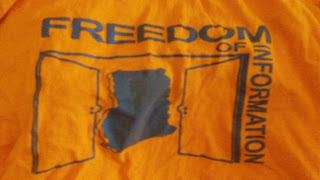Americans are known for eating too much. The USA is the birthplace of McDonalds, the world’s most mysterious cheeseburger. Our plates have expanded to twice the size they should be as our obesity rate flies off the charts. So I was quite surprised when I came to Ghana and found that I, of strong American stomach, was no match for the culinary culture of the country.
Maybe it is the spice—Ghanaian dishes give new meaning to the word. Perhaps it is the fact that, as a vegetarian, I am not used to eating meat- or fish-based foods every day. But what most likely causes this reaction of foreigners to Ghanaian food is the very composition of the cuisine here.
Fufu, banku, and kenkey are all variations of the same popular dish: starches such as potatoes, cassava, plantains, and maize are ground into a fine powder, which is then fermented and made into a thick, dough-like ball. It is served with a variety of soups: fisherman’s stew, palmnut soup, groundnut soup, and okra soup being the most popular. These are all prepared with heavy doses of oils and fats, which drift to the surface of the bowl in little bubbles. All in all, it is quite a digestive adventure for a foreigner.
 |
| Fufu in Light Soup |
Ghanaians love these dishes. Eating them from an early age, they crave the decidedly full feeling that one gets after consuming a bowl. Unfortunately it is quite hard to develop a taste for this, a juxtaposition to the unsatisfied feeling that Ghanaians get after eating a plate of American or European food. Two hours later you are hungry, they say.
Jollof rice, redred, and waakye are more foreigner-friendly dishes. Made with local peppers, tomatoes, and palmnut oil, heaping plates of the deliciously steaming foods are served to Ghanaians and Obrunis alike. Like American Thanksgiving dishes, each family makes these foods differently, and it is a point of pride to our Ghanaian RA that her mother makes the best jollof in Kumasi.
In a Ghanaian home or restaurant, it is constantly embarrassing to leave food on the plate. I am reminded of fast-food Italian restaurants in America—after overfilling your belly it looks as though you haven’t made a dent!
The waiter comes to collect the still-full bowl and says nothing, but dons a disappointed expression that speaks volumes. I try to compliment the food but am too stuffed to speak. At the table next to me, two Ghanaian women are slurping fufu soaked with soup out of their fingers, effortlessly eating the whole bowl. What an Obruni I am!
































